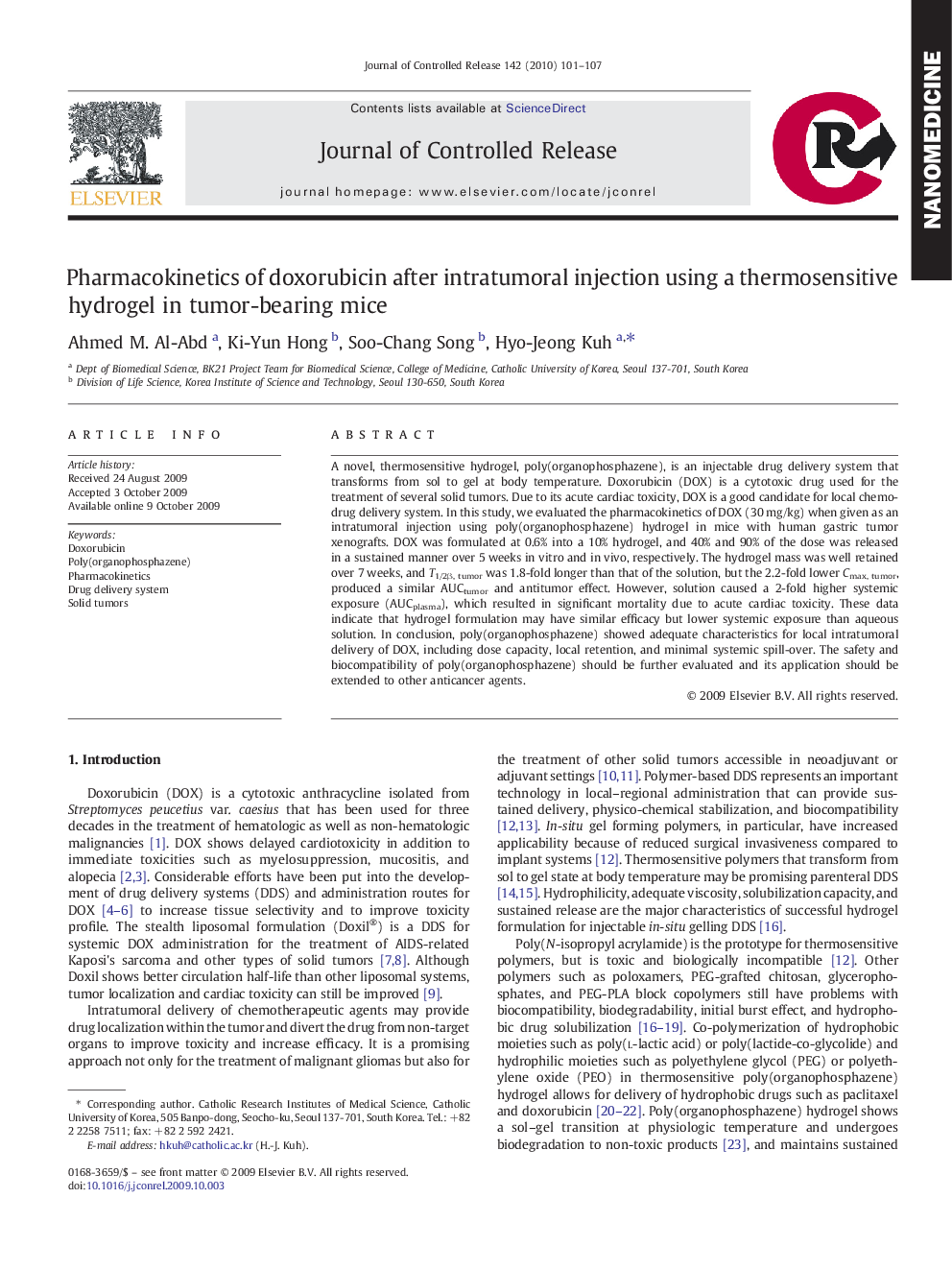| Article ID | Journal | Published Year | Pages | File Type |
|---|---|---|---|---|
| 1425861 | Journal of Controlled Release | 2010 | 7 Pages |
A novel, thermosensitive hydrogel, poly(organophosphazene), is an injectable drug delivery system that transforms from sol to gel at body temperature. Doxorubicin (DOX) is a cytotoxic drug used for the treatment of several solid tumors. Due to its acute cardiac toxicity, DOX is a good candidate for local chemo-drug delivery system. In this study, we evaluated the pharmacokinetics of DOX (30 mg/kg) when given as an intratumoral injection using poly(organophosphazene) hydrogel in mice with human gastric tumor xenografts. DOX was formulated at 0.6% into a 10% hydrogel, and 40% and 90% of the dose was released in a sustained manner over 5 weeks in vitro and in vivo, respectively. The hydrogel mass was well retained over 7 weeks, and T1/2β, tumor was 1.8-fold longer than that of the solution, but the 2.2-fold lower Cmax, tumor, produced a similar AUCtumor and antitumor effect. However, solution caused a 2-fold higher systemic exposure (AUCplasma), which resulted in significant mortality due to acute cardiac toxicity. These data indicate that hydrogel formulation may have similar efficacy but lower systemic exposure than aqueous solution. In conclusion, poly(organophosphazene) showed adequate characteristics for local intratumoral delivery of DOX, including dose capacity, local retention, and minimal systemic spill-over. The safety and biocompatibility of poly(organophosphazene) should be further evaluated and its application should be extended to other anticancer agents.
Graphical abstractFigure optionsDownload full-size imageDownload as PowerPoint slide
